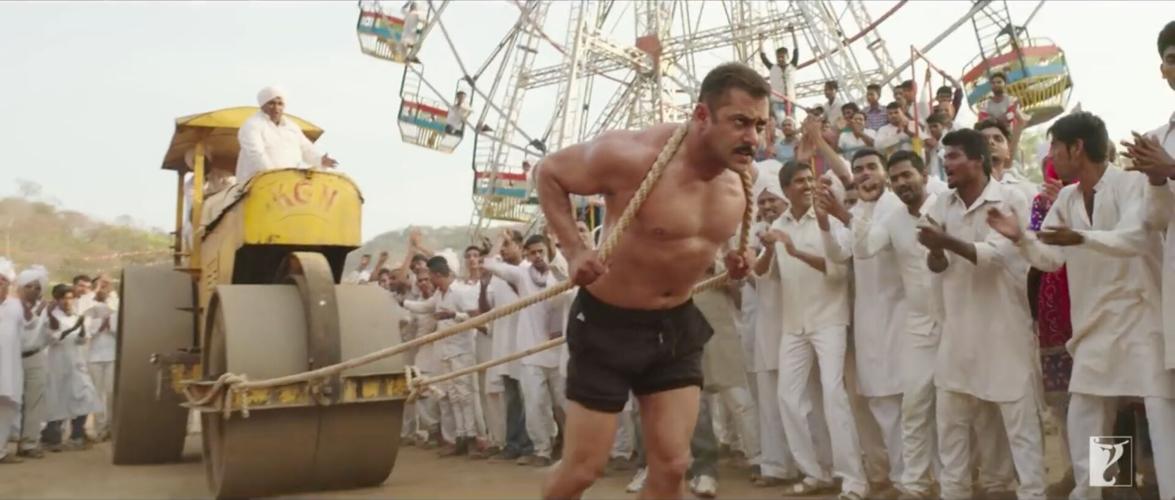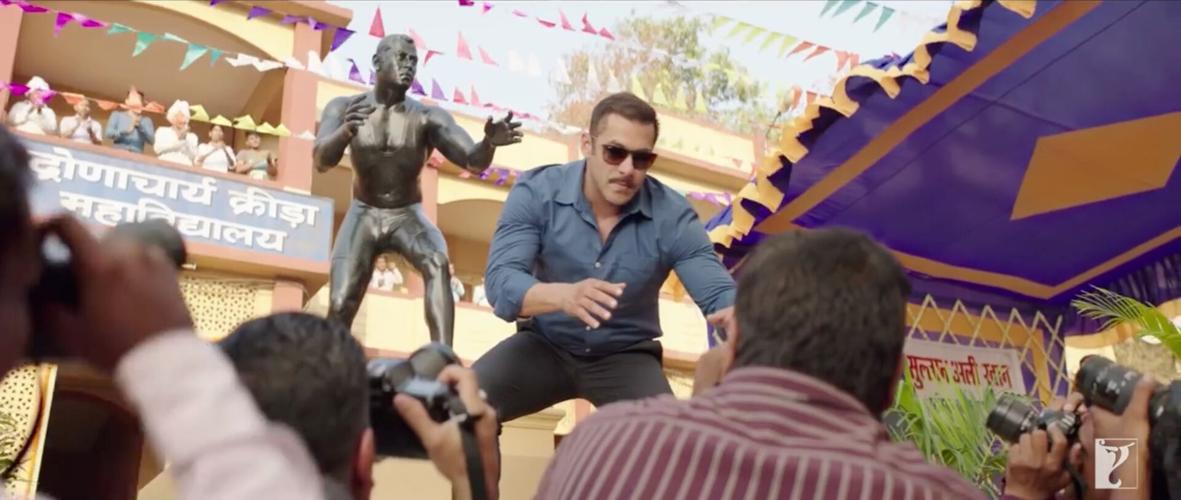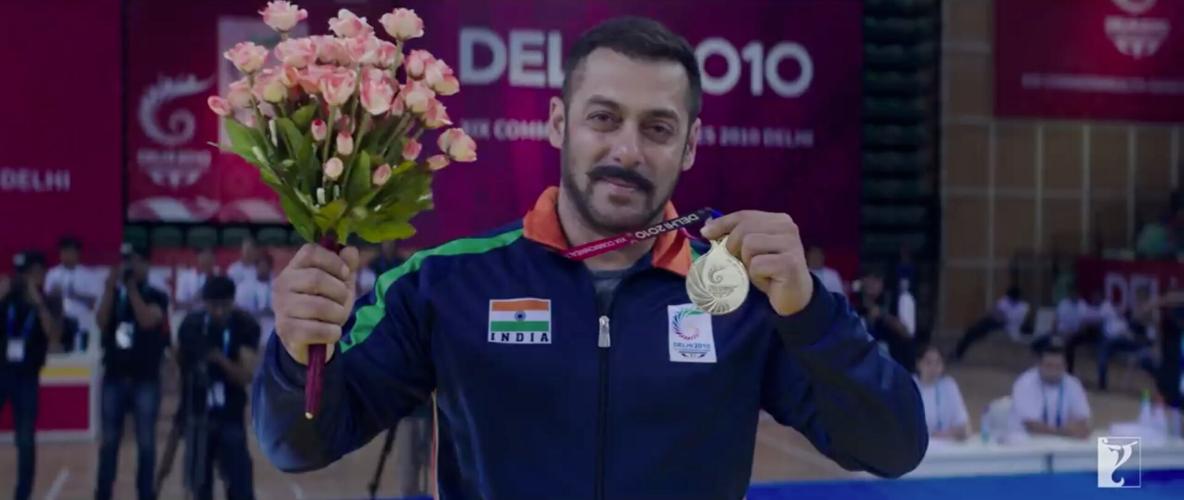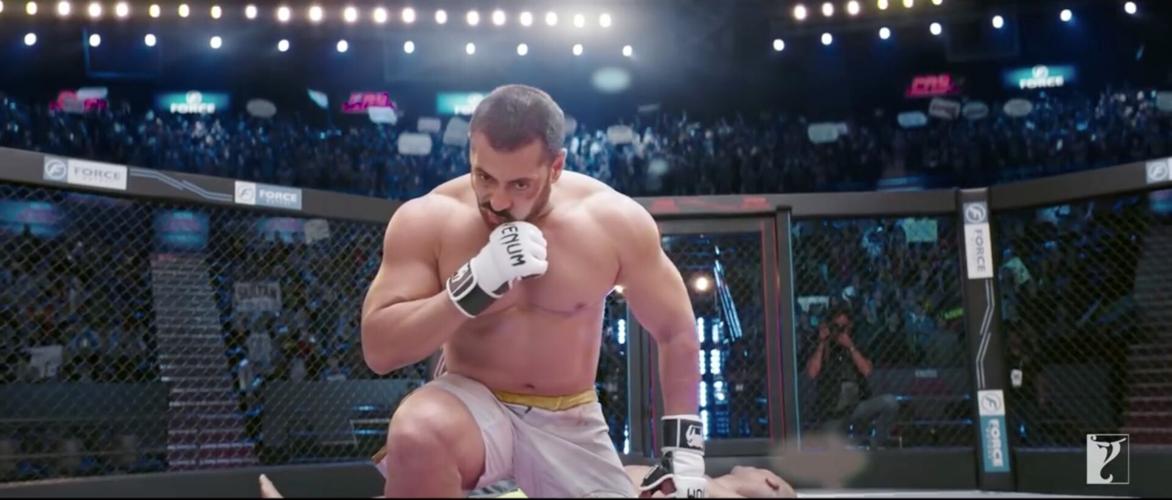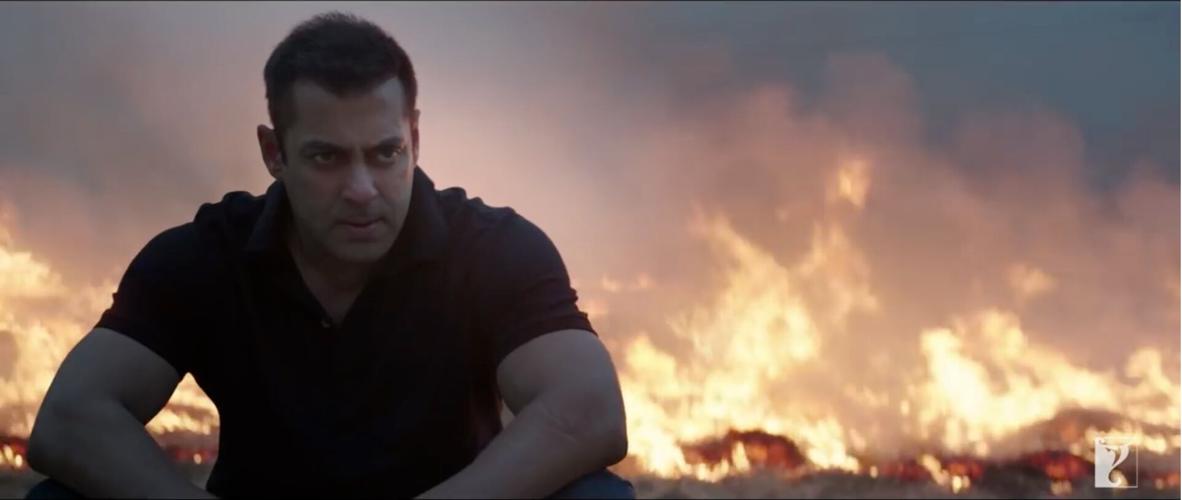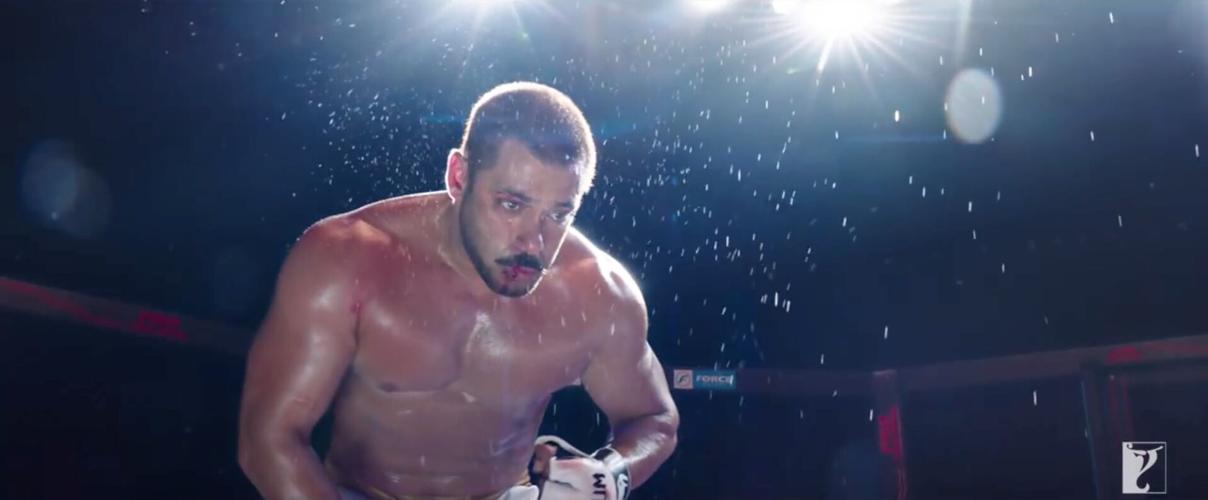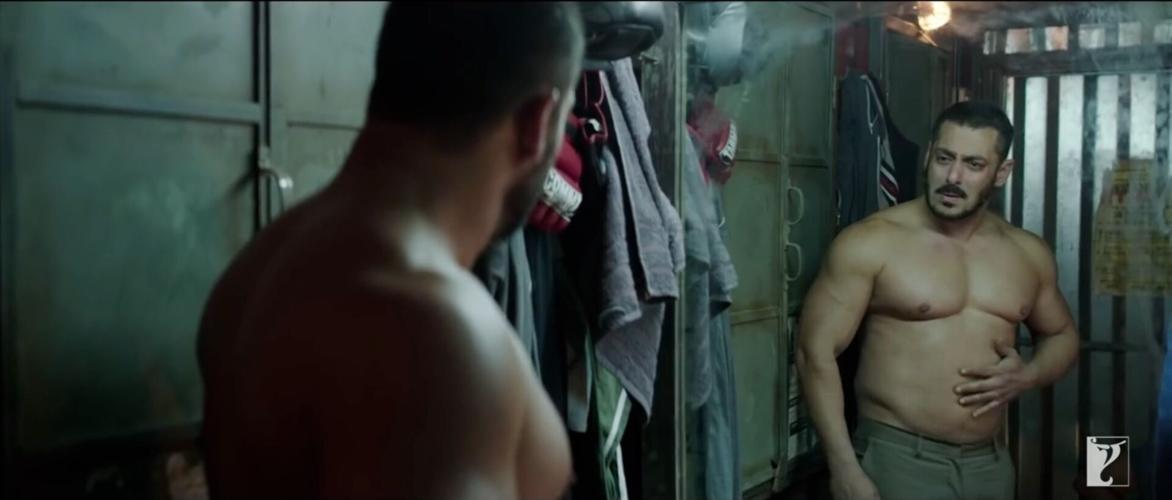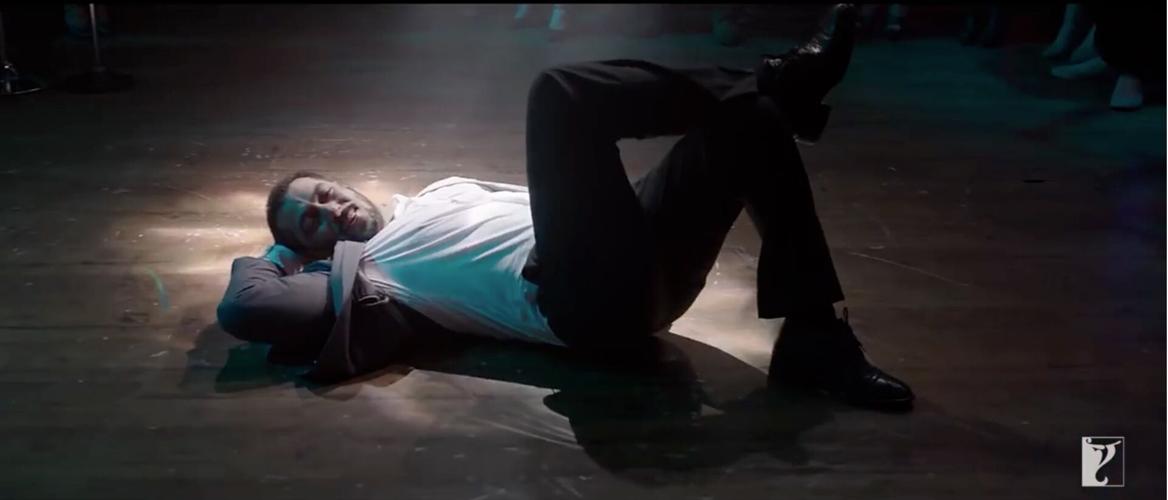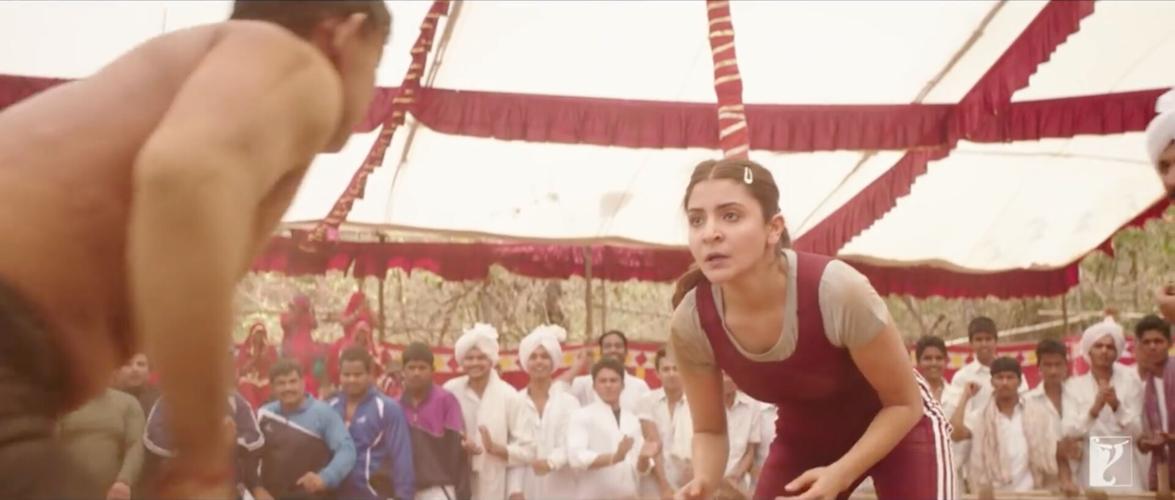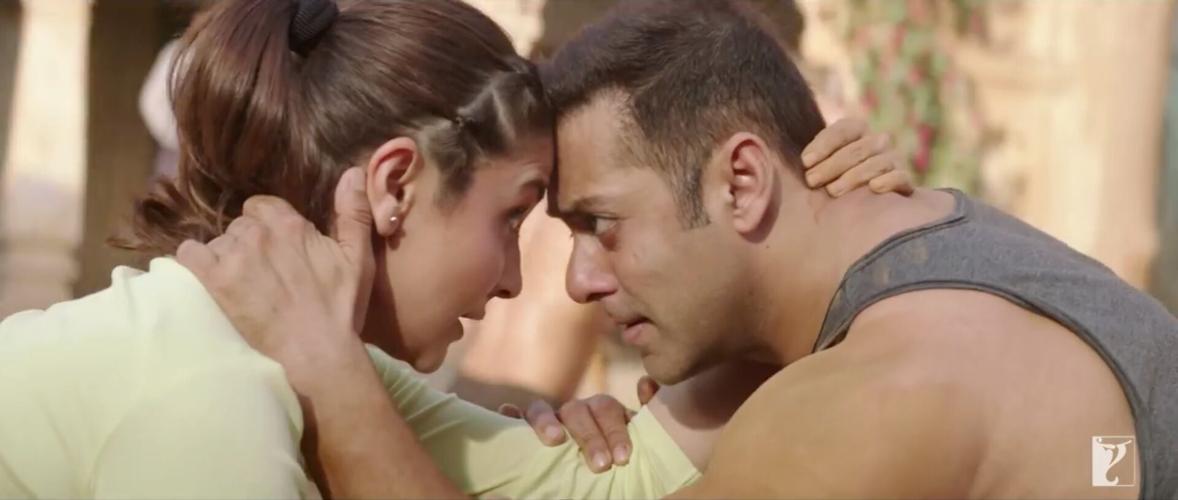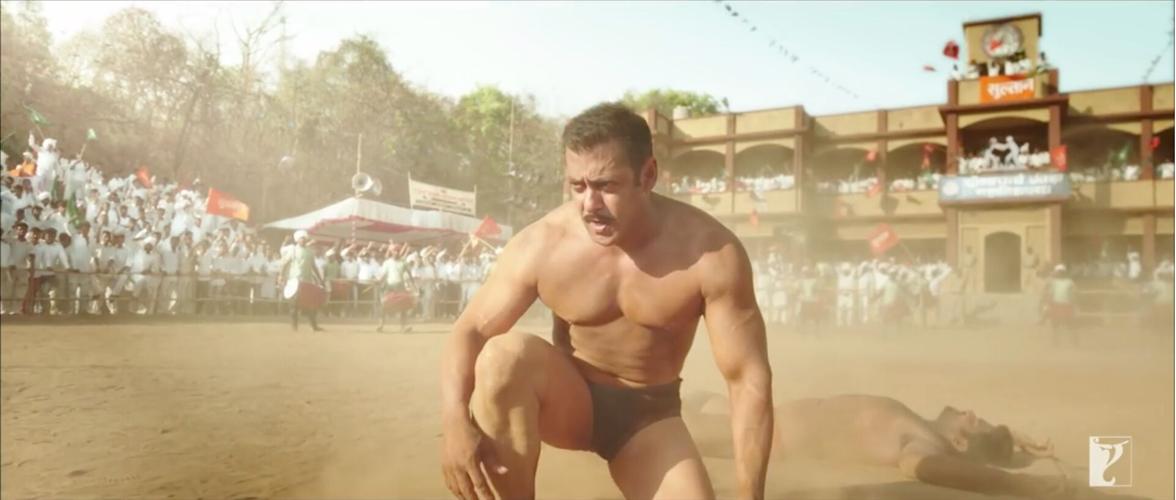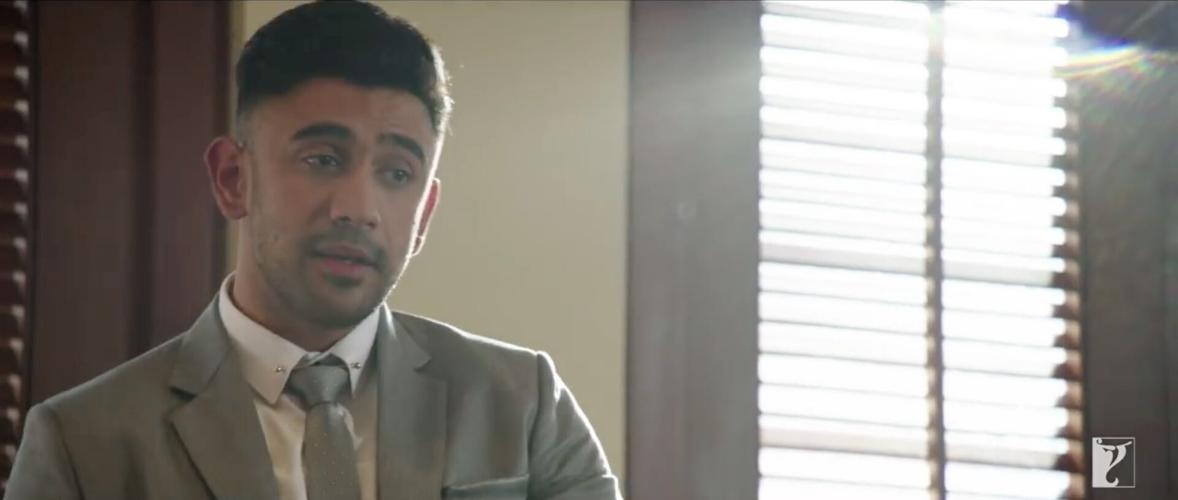This Bollywood movie is now the fifth, highest-grossing, Indian film in the world. It also made the U.S. top ten during its first weekend in semi-wide release. However, it was reported that despite the success this film probably won’t overtake PK (2014), which stands as the number-one, Indian film in the world. Typically, foreign films don’t do well in this country, or if one does well, it’s very few and even quite far between. It’s especially rare that a film will do as well when it has no marketing, at least no traditional marketing. There were no TV spots that I saw, and I watch a lot of TV. There were no trailers in multiplexes and no posters anywhere, and I visited not only theaters on Delmarva but also several multiplexes in Philadelphia and New York City two months prior to this film’s release. In the days leading up to the release, there weren’t even a lot or any critical reviews for it. Despite all that, the movie still made it into the U.S. top ten. It continues an interesting trend. If a foreign film is going to make it into the U.S. top ten box office during its opening weekend, that foreign film is likely to be a Bollywood film. The only other, top-grossing, foreign films within the past decade to be placed in the U.S. top ten on their opening weekends were four, Mexican films. There’s probably an underground, Indian or Bollywood fan-base that doesn’t need traditional marketing to support these films, but there might be something more to this movie and to its success.
I’m not too familiar with Bollywood history, so it might not be the first to do this, but this movie is basically the Indian version of Rocky (1976). Instead of boxing, the sport here is wrestling and later mixed martial arts, or MMA. There may have been an Indian boxing film prior to this that paid homage better, but the premise and parameters here skew so closely to that, Oscar-winning film that the comparisons are almost unavoidable.

Salman Khan is 50 years-old in real life. I presume his character here is of similar age, which is even older than Sylvester Stallone who was only 30 years-old in the original Rocky. Yet, his age in that film and in subsequent features was always an issue, which puts this movie in-line with that Stallone picture, but Khan’s age being greater makes Khan’s age more of an issue, pushing credibility to its limit. Yes, there are wrestlers in the WWE who are in their late 40’s and early 50’s, but the WWE isn’t a competitive sport. Khan is in great, physical shape though. Even in scenes where he’s supposed to be out-of-shape and he can’t stand to have his shirt off because he’s relatively fat, he’s still more muscular than a lot of people could ever hope to be, even if they spent every day in the gym for 50 years. So, his viability as a wrestler is possible.

Salman Khan stars as Sultan Ali Khan, the only child of a farmer but who also works installing satellite TV dishes. It’s not clear, but apparently this has been his life for 50 years or however old he is, yet he looks like a bodybuilder. He looks like the Indian version of Hercules. He’s bulky but in a way that’s obvious he’s mostly-muscle. This movie would have us believe that he didn’t start training to become a wrestler until late in his life. If that’s so, then where did he get that body? One does not get that buff from farming or installing satellite dishes.

Anushka Sharma (pictured above) co-stars as Aarfa Hussain, the daughter of a wrestling coach. She’s actually a wrestler herself who wants to become a world champion or even an Olympian to make her father proud and to prove women can be more than what they’re limited to. Sultan sees her and falls in love at first sight. The movie would then have us believe that Sultan decides to become a wrestler simply because she’s a wrestler and he, based on nothing else beyond that superficiality, instantly wants to marry her.
When Sultan goes to her father’s open gym or training space, he asks to be trained. Her father and even Aarfa herself doubt him. It’s almost as if they don’t have eyes. No one points out that he has the body of a burly, heavyweight athlete, that he literally has the form, the pecs and the biceps of a Greek god. At her father’s space, there are a lot of Indian beefcakes who walk around practically naked in nothing but loincloth, as if they’re bronze, Greco-Roman statues. The biggest and most buff is a wrestler named Pawan. Sultan is way bigger than Pawan and no one ever points that out.
Written and directed by Ali Abbas Zafar, this aspect of the movie is rather indicative of what was problematic here. There is a lot about Sultan that is blatantly ignored or overlooked. I never felt like I understand where this guy originated. Maybe if he were younger, I could forgive it more, but Khan is possibly too old for the role. The way his character is painted, it’s as if he’s never been in love before or even in any kind of a relationship, which seems unlikely given his age and the culture in which he lives.

Like with most Bollywood productions, this one has musical numbers. Most of them are fun and catchy. They do help to reveal character. Khan is cute to watch, but again I thought he was a bit too old and bulky to be doing certain dance moves. He simply looked too awkward doing what amounted to twerking or even break-dancing. His best number is when he’s just standing still in a spotlight and belting out a ballad.
These songs are supposed to fill out the romance and the relationship between Sultan and Aarfa. Yet, as such, a lot is glossed over. The music and lyrics convey good emotion, but a lot of details aren’t conveyed. For example, what was frustrating was that Sultan and Aarfa get married without any conversation. Beside becoming a good wrestler who wins a match against a formidable adversary named Devrath, Aarfa is never able to give voice as to why she would want to be with Sultan. If she wanted to marry a good wrestler, she could have married any number of guys before or even along side Sultan in her father’s gym, so why him?
It gets more frustrating because after she marries Sultan, she gets pregnant. She learns of this at the same time she gets news that she was accepted to go to the 2012 London Olympics. Her father suggests an abortion, although not directly, but she rejects it by then saying her dream of becoming a champion wrestler is no longer her dream. It undermines her great feminist perspective, which she had at the beginning.

As it’s learned, Sultan and Aarfa do break up after they married. It’s not clear if they officially divorced or not, but they did separate and stop talking to and being with each other. Yet, the reason they broke up feels totally contrived and there only to have artificial drama between the two of them for the last hour or third act of this film. It feels contrived because by the end that reason is dismissed stupidly.
Aarfa is upset at Sultan because he basically chooses wrestling over her and especially their baby. By the end, what brings them back together is him going from wrestling to MMA and winning there. I suppose that it’s ultimately about her realizing that now he’s this sportsman who needs to do sport in order to be fulfilled. Yet, they do this thing where Aarfa and Sultan go around each other. He supposedly enters the sport for her and returns to it somewhat for her, but she demonstrates several times that she never needed him to be in sport or a champion as a condition of her love.
The movie never acknowledges this disconnect. It just skips over it because it wants their relationship to hinge on this sport when a true analysis proves that their relationship doesn’t. What if Aarfa hadn’t been a wrestler. What if she had been a gynecologist? Would Sultan have given up or have gone to medical school to pursue gynecology?

This movie wants to be several Rocky movies all rolled into one. With its interval aka intermission, the movie is about three hours, so you could fit at least two Rocky films into it. It wants to have that underdog Rocky aspect. It wants to have this independent and somewhat progressive woman aspect, and it wants to have this new sport of MMA taking off and being inclusive of Indian people. However, trying to have and weave together all these aspects, it fairly muddles them all and makes the movie too long. It’s not that Zafar shouldn’t have had all those aspects. He simply needed to trim some of the fat.

The training montages go on too long. There’s one montage that rips off the iconic training montage in Rocky almost beat-for-beat, except instead of ending in front of the Philadelphia Art Museum, Sultan ends in front of some museum in Delhi. That montage could have been cut down. The musical numbers go on too long. I didn’t need to see Khan shake his rear-end or thrust his pelvis as much as he did. The so-called action scenes also go on too long. The chasing of kites and the parkour were pointless. The Looney Tunes-inspired comedic bit was out of place and tonally way off. Yet, the third and last hour, especially last half-hour, is pretty much all action. It’s one, MMA fight after another.
The way they’re choreographed and filmed, those MMA fights are intense and feel real. Not since last year’s Creed have there been as intense and realistic, fight scenes. Khan goes up against real-life MMA fighters and even actor-martial artists like Marko Zaror. Zafar puts us right in the ring with Khan and these real-life, martial artists and lets us really experience every hit and every breath. Even the repeated suplex or “Sultan Slam” never got old. Yes, those fight scenes are well done. The only thing that didn’t work was the somewhat magical realism, involving dirt or the soil of Haryana. There was already a metaphor being depicted on screen. Zafar didn’t need another one.

The movie has good supporting actors, but I wish it did more with them. Amit Sadh (pictured above) plays Aakash Oberoi, the owner of a MMA venue in financial trouble who befriends Sultan. More could have been done to build that friendship. Aakash calls Sultan a brother by the end and I didn’t fully feel it. It’s not like the familial bond built between Rocky and Adonis in Creed.
Kumud Mishra plays Barkat Hussain, the father of Aarfa, and he’s not utilized very well either. He has the veritable, Burgess Meredith role from Rocky but he’s replaced later in the film when Sultan switches coaches for Fateh Singh, played by Randeep Hooda. Logically, it makes sense for Sultan to train with Fateh and not Barkat, but it’s the one of few times when logic is unnecessary and bloating the movie with more characters is a detriment.

Sultan Sees Aarfa
Regardless, this is a good movie. Yes, it has its issues, which drag it down a bit, but the movie has so much surface pleasures, the charm of Salman Khan being at the top, that it can’t be totally denied.
Five Stars out of Five.
Not Rated but for general audiences.
Running Time: 2 hrs. and 50 mins.

